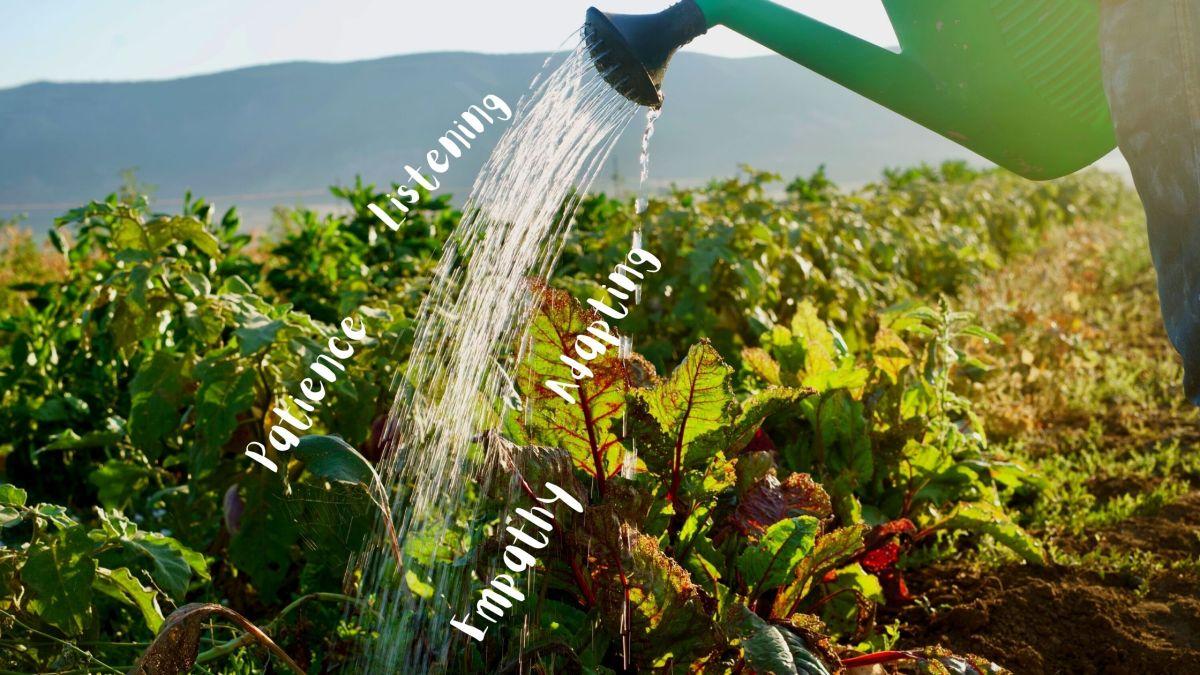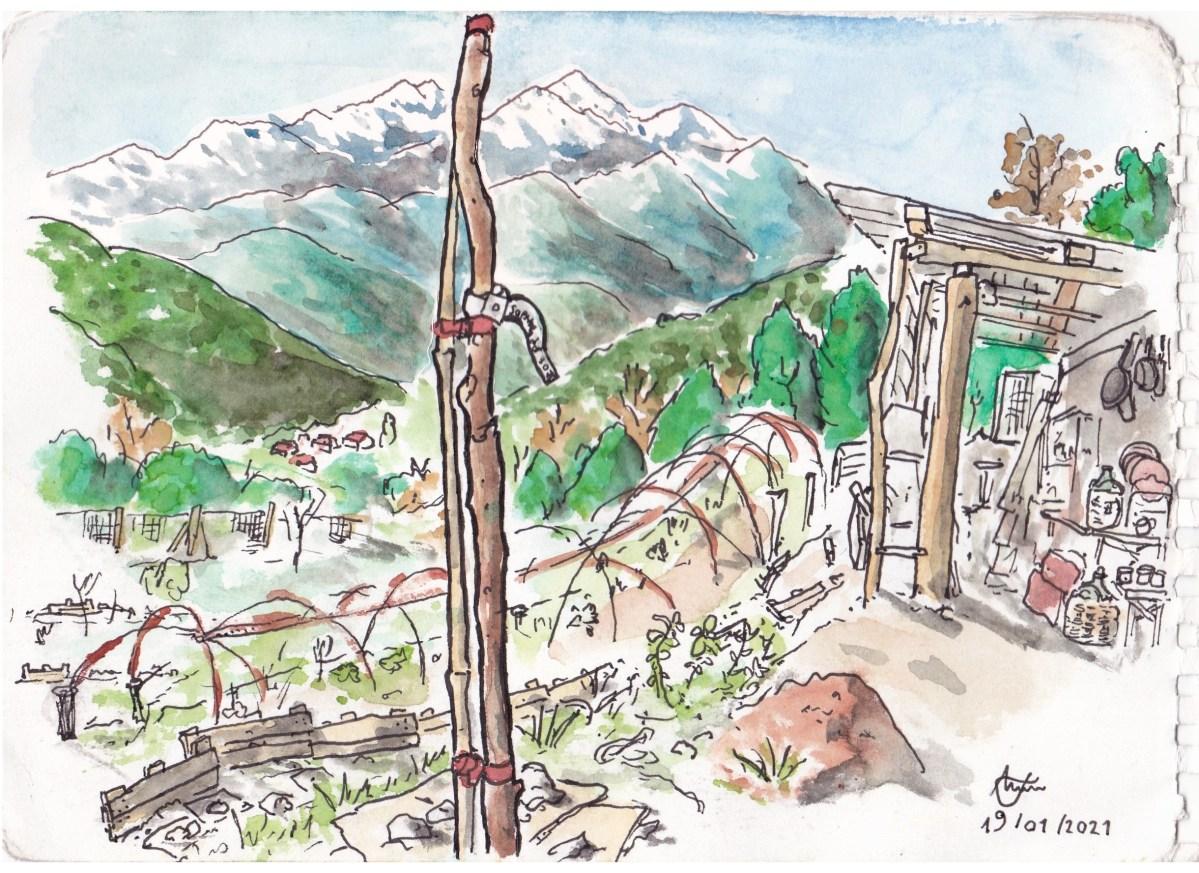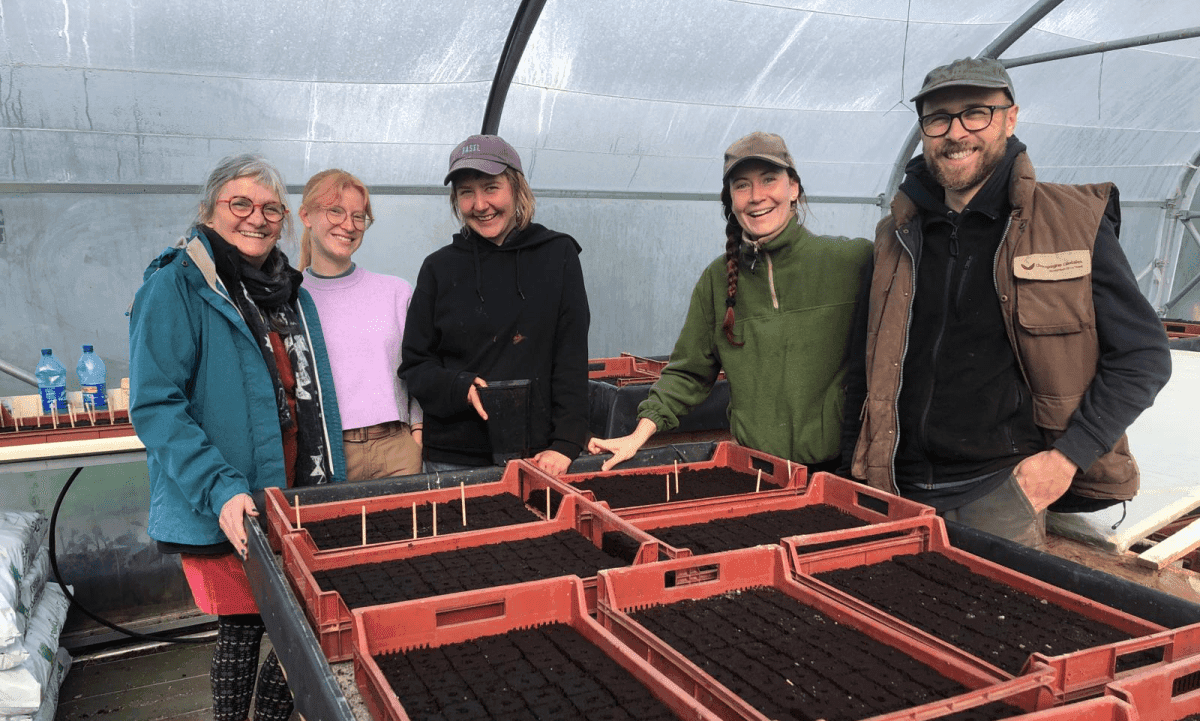
On Cultivating Good Communication When WWOOFing
Wholesome communication is not so unlike tending to your organic garden. It requires good intentions, a few handy tools, and a bit of work. Here, WWOOFers and hosts come together to give their best practices around how to effectively communicate in hopes that your experiences on the farm may flourish.
Laurence, "If you prepare before there won't be any unpleasant surprises."

To communicate is to speak. I believe people are too hesitant to speak up about things. At times I have the impression they are scared—they are scared how it’s going to be interpreted. If you sense something isn't going well, you have to be able to talk about it.
Before all else, I think it’s absolutely necessary to educate yourself. You don’t just take off like that—you exchange emails, you talk on the phone. Often the hosts who welcomed me have said it’s so important to hear a voice. They hear how people express themselves, how they will interact with them. You both see first hand if it’s going to be a good fit or not.
Know where you are going and what you're getting into. For example, if they tell you it’s necessary to get up at 6 a.m. to start the workday, well, then you know you either have to accept getting up at 6 a.m. during your vacation or you don’t go to that farm. Naturally, if you're planning to get up at 9 a.m. of course it’s going to be a source of conflict. It makes sense; if you prepare before there won’t be any unpleasant surprises.
Philippe, "Verify that you have read and understand the WWOOF charter in advance."

Right from the get go, it’s necessary to consult and understand the WWOOF charter—Have you read the charter? Did you understand it? Everyone must take the responsibility in advance because in my opinion by the time you have to result to nonviolent communication tactics to resolve a predicament, it’s already too late. Prevention is key.
We prepare too: our profile is saturated with our expectations from WWOOFers and there is a document written in French and English that we email to candidates so there are no surprises. We insist on the original principles of WWOOF which is a sharing and partaking in the family life on an organic farmstead.
With candidates, we can often tell right away that they didn't read the WWOOF charter and don't understand the true spirit of WWOOF culture.
In this case, we apply the principle of nonviolent communication in explaining what WWOOFing is all about—meaning to say that it’s not about 2 or 3 hours of work and then you take off after lunch, but a true integration in the family life, a sharing, an exchange.
As for addressing a conflict—well it’s not something you do in the heat of the moment. It’s not while working in the garden that you want to rock the boat. Everyone is going to get worked up and it will be more aggressive! It's better to wait and take the time to let things cool down—after lunch, after dinner, while having a coffee break. You have to create the right situation to bring up the issue.
Frédéric, host in Jura, "The secret is a true desire to want to learn from the other and to share."

After 10 years of welcoming WWOOFers, you could say I have a sort of rhythm of communication in place. For the welcome, I present our home, the grounds, and I set the tempo. Then together we define the schedule, our needs, possible times to use the bikes, canoe, and also moments for teaching.
For a few days, we get to know each other. Rarely after this initial period do I have to redefine the agreement. If ever it happens, I put myself at fault for failing to set proper boundaries or badly defining the daily tasks like washing dishes, preparing meals together etc.
If both parties have good intentions rooted in a willingness to share, exchange, and participate, there is rarely a misunderstanding.
As a piece of advice, I follow the philosophy of WWOOFing: to always want to welcome the other, an interest to learn about the other, and a desire to exchange. If you have these good intentions from the start, rooted in sharing, in mutual exchange and participation, then there is rarely a misunderstanding.
Carol, a WWOOFer who became a host, "The key is searching out the needs of one another and meeting them together."

I have experience from both sides—though I have only just begun to host, I have been a WWOOFer for 3 years. This allows me to understand the difficulties when WWOOFing and when welcoming WWOOFers. Being in the other’s place has helped me when hosting.
Communication is checking that other is okay.
For me, kindhearted communication is really about maintaining a pleasant relationship between all parties. Most important is trying to search out the needs of the other and meeting them together. So for instance, I’m going to often ask questions like, "Did you sleep well? Was it too cold?" to make sure the person feels okay.
A Few Communication Tools
One technique I use is speaking from the point-of-view of the first person “I” more than the second person “you.” So instead of saying, “You have to do this,” I”m going to say, “I would love it if this could get done.”
Another handy tool is to be objective and not to judge. I begin by describing instead of giving orders right away. Describing what I see and expressing what it makes me feel—just like a camera: "I saw this and that which in turn made me feel this way," then I check with the other person, asking, "Is it the same for you too?"
Whether it is a conflict when WWOOFing or hosting, it’s the same approach: describe what I observe, express how it makes me feel and then ask how he/she feels about it—then together we see what each one needs and find a solution that can suit us both.
Advice for WWOOFers: exchange information before coming and be able to adapt to the rhythm of the family life
For WWOOFers, I would advise to practice adaptability. Try adapting yourself to different families, groups, farms, whatever. Also, have some exchanges before coming. For instance, send messages and ask good questions like, "How do you operate? What does hosting me entail?" Voilà.
Advice for Hosts: value the help that the WWOOFer gives and be hospitable
Know that it can cost a lot of energy for a WWOOFer to adapt and secondly, give them a warm welcome. For instance, it's nice that their lodging be clean and comfortable. Another bit of advice is value the help the WWOOFer provides. For example, telling them, "Thanks to you, I was able to harvest more vegetables and now they wont go to waste."
Alejandro, a Colombian WWOOFer, "Put yourself in the other's shoes for understanding."

Contrary to your typical touristic voyage, I lived the everyday life of a French family in the outskirts of Montpellier. It was as if I was a part of the family. Without a doubt, these two weeks were the best part of my trip.
From my own experience, the most important thing is the act of sincerely listening.
Because my stay with the family went so well, thankfully I didn’t have a conflict during my entire time WWOOFing. However, if it were to ever happen, I would say that you must first listen, then give your own point of view, putting yourself in the place of the other and to finally find the right solution.
For WWOOFers, my advice is to always be respectful. If a problem comes up, don’t forget to listen in order to be understood. As for hosts, remember that each person possesses different and unique talents. Many of us WWOOFers are doing this for the first time. In life we are all beginners at some point or another!
Lire davantage
Une fois par saison, l'actualité du WWOOFing par email


